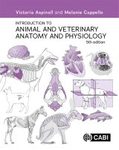Edited By: Roland N Perry and David A Wharton
320 pages, b/w photos, b/w illustrations, tables
![Molecular and Physiological Basis of Nematode Survival Molecular and Physiological Basis of Nematode Survival]()
Click to have a closer look
About this book
Contents
Customer reviews
Biography
Related titles
About this book
Nematodes are renowned for their ability to survive severe environmental fluctuations. Their mechanisms to withstand temperature extremes, desiccation, and osmotic and ionic stress are presented here together with information on the underlying biochemical basis contributing to survival. Highlighting parallels and contrasts between parasitic and free-living nematode groups, this book integrates strategies that enable nematodes to persist in the absence of food with tactics used by parasitic forms to survive the defence responses of a plant or animal host.
Contents
1. Survival of Parasitic Nematodes outside the Host 2. Survival of Plant-parasitic Nematodes inside the Host 3. Survival of Animal-parasitic Nematodes inside the Animal Host 4. The Genome of Pristionchus pacificus and Implications for Survival Attributes 5. The Dauer Phenomenon 6. Gene Induction and Desiccation Stress in Nematodes 7. Longevity and Stress Tolerance of Entomopathogenic Nematodes 8. Cold Tolerance 9. Molecular Analyses of Desiccation Survival in Antarctic Nematodes 10. Thermobiotic Survival 11. Osmotic and Ionic Regulation 12. Biochemistry of Survival
Customer Reviews
Biography
Professor Roland Perry is based at Rothamsted Research, UK. He graduated with a BSc (Hons) in Zoology from the Newcastle University, UK, where he also obtained a PhD in Zoology on physiological aspects of desiccation survival of Ditylenchus spp. After a year's post doctoral research at Newcastle, he moved to Keele University, UK, for three years where he taught Parasitology. He was appointed to Rothamsted Research in 1976. His research interests have centred primarily on plant-parasitic nematodes, especially focusing on nematode hatching, sensory perception, behaviour and survival physiology, and several of his past PhD and post-doctoral students are currently involved in nematology research. He co-edited "The Physiology and Biochemistry of Free-living and Plant-parasitic Nematodes" (1997) and the text book "Plant Nematology" (2006). He is author or co-author of over 40 book chapters and refereed reviews and over 100 refereed research papers. He is co-Editor-in-Chief of "Nematology" and Chief Editor of the "Russian Journal of Nematology". He co-edits the book series "Nematology Monographs and Perspectives". In 2001, he was elected Fellow of the Society of Nematologists (USA) in recognition of his research achievements and in 2008 he was elected Fellow of the European Society of Nematologists for outstanding contribution to the science of Nematology. He is a Visiting Professor at Ghent University, Belgium, where he lectures on nematode biology, and also gives regular lectures to the MSc course at Imperial College London.
David Wharton's PhD topic at the University of Bristol, after gaining a BSc (Hons) at the same University, was The Structure and Function of Nematode Eggshells. This developed into an interest in nematode survival mechanisms, particularly how they survive freezing and extreme desiccation (anhydrobiosis). After postdoctoral positions at University College Cardiff and the University College of Wales, Aberystwyth, David was appointed to a lectureship in Zoology at the University of Otago, New Zealand in 1985, where he is now an Associate Professor. David was awarded a DSc by the University of Bristol in 1997 for his work on the environmental physiology of nematodes. His move to New Zealand gave him the opportunity to work in Antarctica, where he isolated and cultured an Antarctic nematode that is the only organism currently known to survive extensive intracellular freezing. David is the author of two books: "A Functional Biology of Nematodes" (1986) and "Life at the Limits: Organisms in Extreme Environments" (2002). He has also published 92 refereed research papers and 7 book chapters.
Edited By: Roland N Perry and David A Wharton
320 pages, b/w photos, b/w illustrations, tables

















![Guide des Tuniciers de l'Europe de l'Ouest: Atlantique & Méditerranée [Guide to Western European Tunicates: Atlantic and Mediterranean]](http://mediacdn.nhbs.com/jackets/jackets_resizer_medium/26/263079.jpg?height=150&width=104)

















